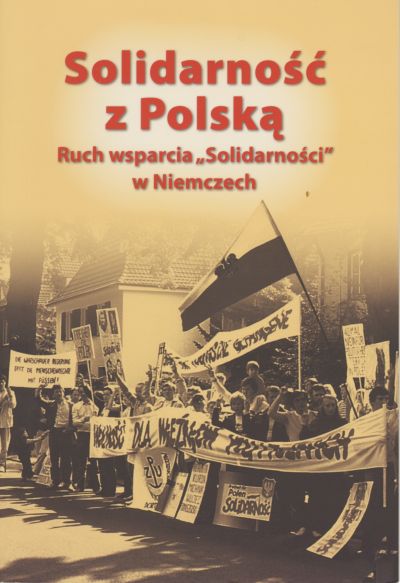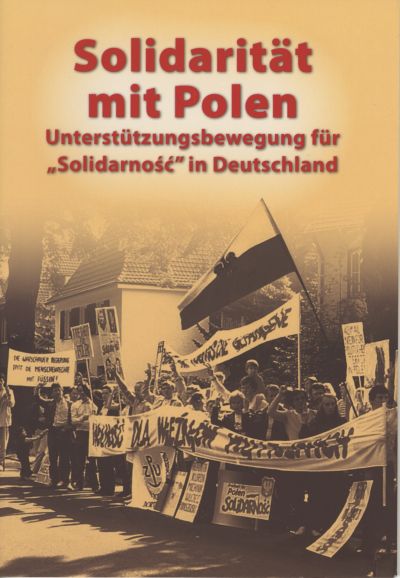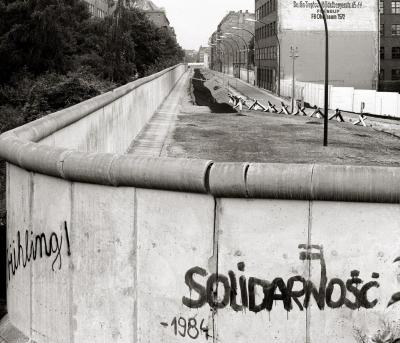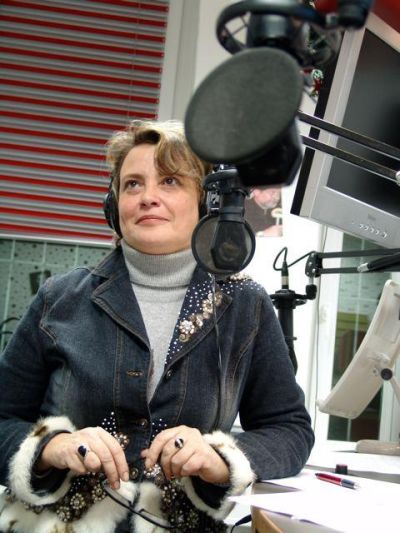The pro-Solidarność movement in Germany

The association Solidarity of Free Poles in Bavaria (Solidarność Wolnych Polaków w Bawarii, (SWPwB)), which was founded in 1983, came about thanks to an initiative of the employees of the Munich station Radio Freies Europa. The first managing director of the association was Janusz Urbanowicz, who had already been briefly involved with the movement for the defence of human rights and civil liberties (Ruch Obrony Praw Człowieka i Obywatela (ROPCiO)). He was succeeded by Wojciech Stockinger, who was then followed by Nina Kozłowska. The association also published a “Biuletyn Informacyjny” (Information Bulletin), from which the magazine “Polonik Monachijski” (Munich Polonicus) originated, which was led by Mirra Filipowicz, Jerzy Sonnewend and Bogdan Żurek, to name but a few. This association also belonged to the CSSO. The organisations, which carried out countless initiatives and events for Poland in Bavaria, were energetically supported by actors and artists as well as by employees of the radio station Radio Freies Europa. The following people should be mentioned at this juncture: Jacek Kaczmarski, with whom the songwriter of the “Prager Frühling”, Karel Kryl also performed, Wojciech Stockinger, Santos Liszko, Marcin Idziński and the prominent jazz musician Leszek Żądło. Thanks to her many contacts in German circles, the actor Barbara Kwiatkowska-Lass also played an important role as she got the relief efforts for Poland under way during martial law, looked after political refugees and their families, and started charity events. The association also came up with the idea of the “The right to free speech” exhibition, which, on the initiative of Nina Kozłowska, Anatol Kobyliński and Dr. Witold Pronobis among others, could be seen in the University library in Eichstätt.
The “Solidarność” Munich working group was founded in 1982 by Jerzy Jankowski, who was killed in a car accident at the beginning of the 1990s. Otherwise, we only know that Wiesława Wołek published the magazine “Słowo Solidarności” (“The voice of Solidarność”). No other documents about the group’s activities have been preserved.
More initiatives to support Solidarność were created in Germany from the mid-1980s. These included Teatr Bezdomny “Solidarność” (Homeless Theatre “Solidarność”) led by Paweł Ciesielski and the Klub “Wolni i Solidarni” (“The Free and the United” club), which was formed by Józef Piotrowski.
The organisations that worked together in the pro-Solidarność movement in Germany included: the Christian MissionChSWN, the ZPU association, the Polish Socialist party (Polska Partia Socjalistyczna, (PPS)), the socio-political association “POMOST”, the Polish Club (Klub Polski) in Hamburg, the Polish Information Club (Polski Klub Informacyjny) in Hanover, the Juliusz Mieroszewski Club for Free Political Thinking (Klub Niezależnej Myśli Politycznej im Juliana Mieroszewskiego), the editorial department of the bulletin “Nie Cenzurowano” (“Uncensored”) published by the Düsseldorf Committee “Solidarity with Solidarność”, the Hamburg editorial department of the “Biuletyn Informacyjny”, the Bonn Society “KONTYNENT” (the Continent), the Polish service of the Radio Freies Europa station, and the Congress for a Free Poland in Europe (Kongres Wolnej Polski w Europie).
The founding of the first committees and working groups to support Solidarność triggered a concerted relief operation for the trade union and the democratic opposition in Poland, which benefited those who were imprisoned and their families and was otherwise dedicated to acquiring and transporting medicines, organising protests and taking over the sponsorships for the family members of those persecuted. For example, in 1982, the SWG West Berlin was financially involved in the treatment of a child of Grzegorz Palka, a Solidarność official in Łódź, in a Berlin hospital. The group also organised demonstrations, rallies and marches against the dictatorship in Poland. In this context, it put on a political event with the KOS in January 1982 under the motto, “Solidarność lives”. Demonstrations on the second anniversary of martial law being imposed in Poland took place in Munich and in Cologne. As well as members of the supporter organisations, representatives of the Polish Information Club from Hanover and operators of the Düsseldorf magazine “Nie Cenzurowano” also took part in the rally in front of the Polish Embassy in Cologne. This initiative was also accompanied by a press conference of the SWG Cologne and of the “Solidarność” Relief Committee in Mainz. On 21 May 1984, on the initiative of the “KONTYNENT” society, the supporter organisations gathered together in front of the Soviet Embassy in Bonn to demonstrate on behalf of Andrej Sacharow. From 13 to 20 July 1984, rallies were held in front of Polish institutions in Cologne, which were organised by the SWG Cologne, the PPS party and the “POMOST” association. On 21 July 1984, there was a final demonstration in front of the Embassy of the People’s Republic of Poland in Cologne, which was supported by the representatives of the Christian mission ChSWN, the ZPU association and by members of the supporter organisations. This demonstration was held to mark the fortieth anniversary of the Communists seizing power and was aimed, on one hand, at making German society aware of the court proceedings against the four leaders of the Committee for the Defence of Workers (Komitet Obrony Robotników, (KOR)), which had begun on 13 July 1984, whilst on the other hand, the protest was directed at the virulent human rights and civil rights in Poland. On 1 November 1984, members of the SWG West Berlin, Cologne and Eschweiler – Aachen, as well as the “Solidarność” Relief Committee gathered in front of the Embassy in Cologne to agitate against the Communist regime in Poland and to express their outrage at the murder of the priest Jerzy Popiełuszko. At the time, the Chair of the Christian mission ChSWN Father Franciszek Blachnicki, presented the “spiritual testament” of the murder victim. The demonstration ended with a memorial to the 73 victims of martial law.




